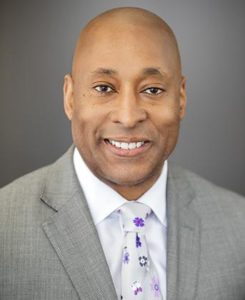I hope you are all staying safe in the rainfall we’re experiencing and that you enjoyed a long holiday weekend celebrating President’s Day. As I reflect on past presidents and their impact, I thought the following quote was a fitting characterization of the obstacles experienced and the resilience our hospitals have demonstrated in the past few years:
“The harder the conflict, the greater the triumph.” – George Washington
A new Los Angeles County Board of Supervisors motion was passed in October 2023, charging the director of the Los Angeles County Department of Public Health (LACDPH) to collaborate with various entities, including the chief executive officer, Department of Consumer and Business Affairs and county counsel, to develop an ordinance within 90 days concerning the collection of data and policies on debt collection and financial assistance activities from hospitals operating in Los Angeles County.
The motion’s directives intersect with existing California hospital charity care requirements and hospital billing and collections requirements, which already entail extensive obligations for hospitals. These requirements already mandate hospitals to provide free or discounted care to uninsured or underinsured patients, offer interest-free extended payment plans, and follow stringent guidelines on debt collection practices.
It’s also critical to recognize that hospitals are not the only medical providers involved in patient care. Many medical providers bill patients separately for their services, including physician groups, anesthesiologists, dental services, surgical centers and more. These providers are not required to follow the financial assistance and charity care guidelines that hospitals are mandated to follow by the State of California. Thus, any regulatory measures must consider the broader health care ecosystem to ensure comprehensive coverage and equitable treatment across all providers.
Additionally, there are complexities involved in the data collection process. Requesting data elements that are not already collected and are not part of the revenue cycle database could impose significant administrative burdens on hospitals. Requesting patient information to be shared with an outside consumer affairs or legal aid advocate to help with the patient’s ability to receive support raises HIPAA concerns regarding patient confidentiality. Requiring consent from the patient on the front end of services may mitigate these concerns, but implementation would require careful consideration.
Given our desire to work collaboratively with LACDPH and county supervisors to shape policy that is in the best interest of hospitals and the communities they serve, HASC will be convening the Los Angeles County Board of Supervisors, health deputies and hospital representatives from within their respective districts to help guide this important policy decision. We will apprise you of any new developments on this front.
We are fully aware and prepared for the possibility that this action in LA County could be replicated in other counties within the HASC region. We’re continually monitoring the situation to ensure that such proposals are identified by HASC, enabling us to promptly notify our members.
Take care and stay safe.
George G.
